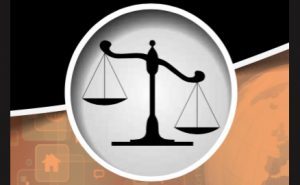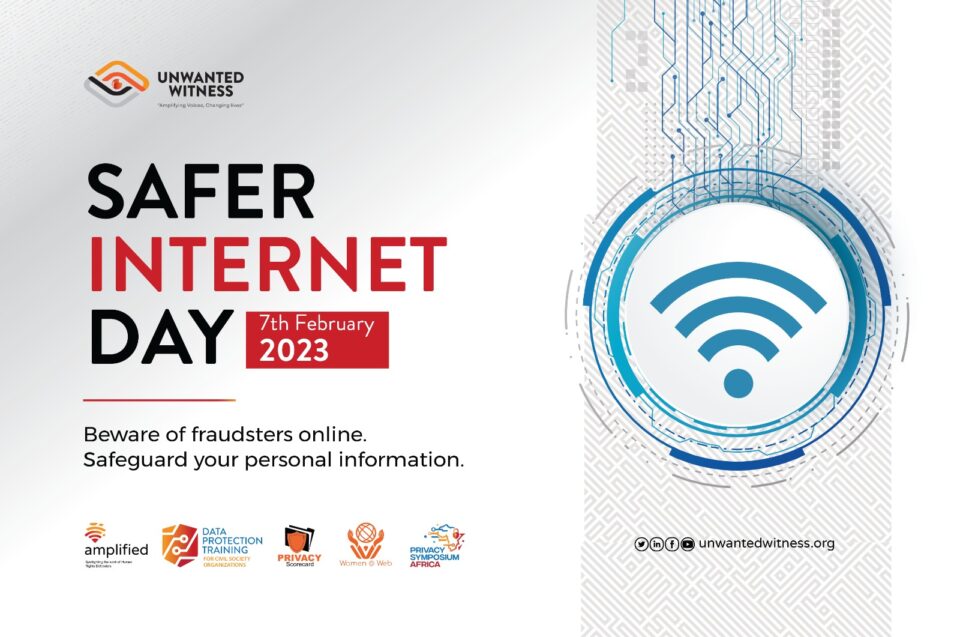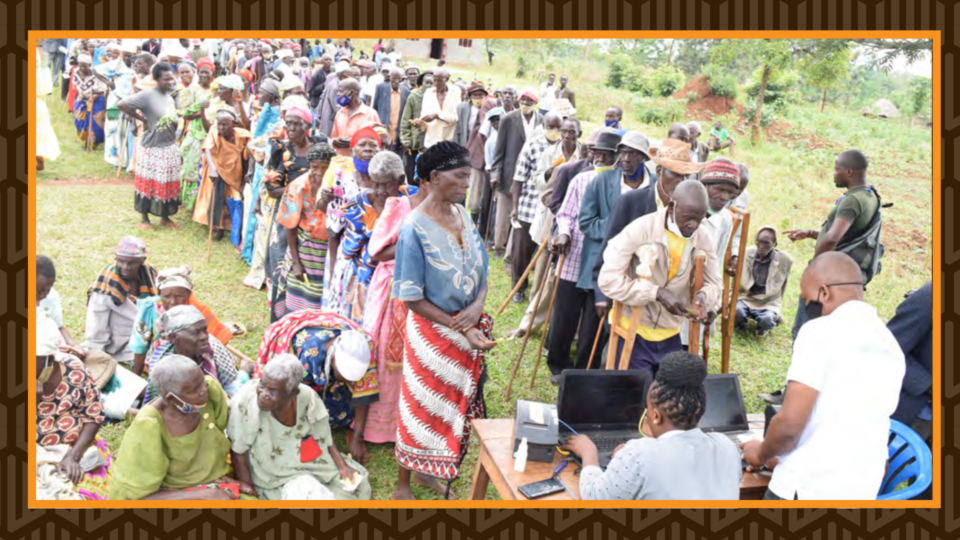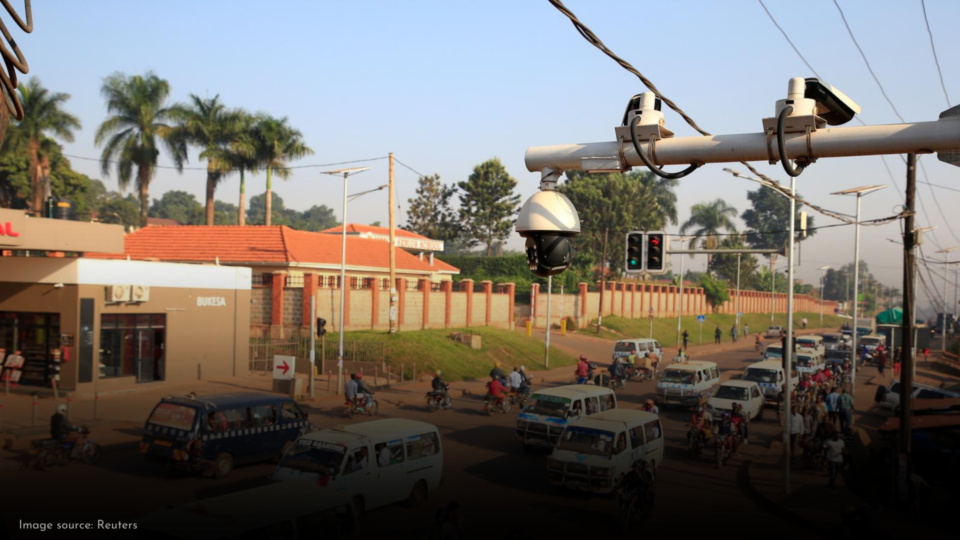UG’s Most threatening Cyber laws to FOE & Privacy online named

Kampala, 18th/January/2017, As Uganda joins the rest of the world to commemorate international Internet freedom day, Unwanted Witness has named the worst and most threatening three (3) cyber laws to freedom of expression and privacy online in Uganda, calling for immediate review and amendment. Regulation of Interception of Communications Act, 2010 (RICA), Anti Terrorism Act, 2002 and Anti Pornography Act, 2014.
This follows a study, which lasted for over two months analyzing Uganda’s cyber laws rating each law’s significance to the enjoyment and exercising of online freedoms especially freedom of expression and privacy as per standards in both the 1995 Constitution of Uganda and International Human Rights Laws, Uganda has assented to.
Well as Uganda currently has about eight legislations namely; the Anti-Terrorism Act, 2002; the National Information Technology Authority, Uganda Act, 2009; the Regulation of Interception of Communications Act, 2010; the Electronic Signatures Act, 2011; The Computer Misuse Act, 2011; the Electronic Transactions Act, 2011; the Uganda Communications Act, 2013 and the Anti-Pornography Act, 2014, the study ranked three as most repressive as far as online freedoms are concerned.
The study made specific findings on each and every piece of repressive legislations and recommended as follow;
(i) Regulation of Interception of Communications Act 2010 (RICA); lacks adequate safeguards to ensure protection of freedom of expression and the right to privacy by giving government unduly broad discretion to monitor and intercept electronic, telecommunications and postal communications between individuals, groups and organizations.
- Section 1 “national security of Uganda,” needs to be revised so that it is more precisely and narrowly defined to suit international norms which states that any restrictions on the right to privacy must be prescribed by law, pursue a legitimate aim and conform to the tests of necessity and proportionality. Therefore, such activities should be authorized only as a last resort.
- Section 5(1) permits for issuance of a warrant for interception of communications by the authorities on grounds of loss or threat to life, gathering information concerning actual threat to national security and threat to public safety, national economic interest among others.
This is described as inconsistent with international standards since the provision allows for authorities to obtain a warrant to intercept communications so long as they minimally justify it under the delineated grounds.
(ii) Ant-Terrorism Act 2002,
This was amended in 2015 to expand definitions of criminalized acts, make indirect involvement in terrorist activity subject to the same penalties as other criminalized acts. But the act contravenes international standards as it lacks clear boundaries on the surveillance powers it establishes.
- Section 19 should specify the circumstances in which each type of surveillance and investigation is appropriate to safeguard adherence to the principles of necessity and proportionality.
- Any order for interception of communication under section 19 MUST explicitly require judicial authorization.
- Reference to the protection of the national economy should be removed from section 19 (4).
- Sentencing guidelines should be provided for the various classes of offences under the act to ensure the necessity and proportionality of the levied penalties.
- The key offences of terrorism and aiding and abetting terrorism in sections 7, 8 and 9 should be more narrowly defined to meet the requirement of legality under international law.
The centralized power to authorized surveillance given to the minister under the Act, in combination with the breadth of this investigative and surveillance power is rife with the possibility of abuse and contravenes the right to privacy and freedom of expression.
The act should clearly delineate the circumstances in which each type of surveillance and investigation is appropriate to safeguard adherence to the principles of necessity and proportionality.
(iii) Anti Pornography Act 2014,
The act makes it an offence to produce, participate in the production of, traffic in, publish, broadcast, procure, import, export or in any way abet any form of pornography.
The act imposes restrictions in a manner that contravenes international standards on freedom of expression and the right to privacy due to an overbroad definition of pornography, the granting of unlimited discretionary power to the pornography control committee and an excessive imposition of intermediary liability on internet service providers.
The following amendments are thus recommended;
- The definition of pornography under section 2 should be redefined with greater precision to limit the scope of representations that are criminalized and prevent the suppression of legitimate forms of expression.
- Repeal section 11 in its entirety to prevent ISPs from bearing responsibility for accessing and distributing illegal content.
- The prohibited acts in section 13 must be clearly and narrowly defined to enable individuals to anticipate the act’s scope and to provide exceptions for intermediaries.
- Section 17 should be repealed and replaced with a provision that immunizes ISPs and other intermediaries from any liability for facilitating the transmission of pornographic or other illegal content.
Whereas it is important for Uganda government to uphold national security and protect territorial integrity by fighting terrorism, this should be done within the admissible human rights standards which respects freedoms including freedom of expression and privacy. Government must therefore adhere to the acceptable standards of transparency and accountability while carrying out surveillance.
For more information, contact;
THE UNWANTED WITNESS – Uganda
Plot 41 Gadaffi Road, Makerere- Kampala
P. O. Box 71314 Clock Tower K’la
Telephone: +256 414 697 635
Email: info@unwantedwitness.or.ug
Website: www.unwantedwitness.or.ug
Skype: unwantedwitness
Twitter: @unwantedwitness
Face book: unwanted witness Uganda




